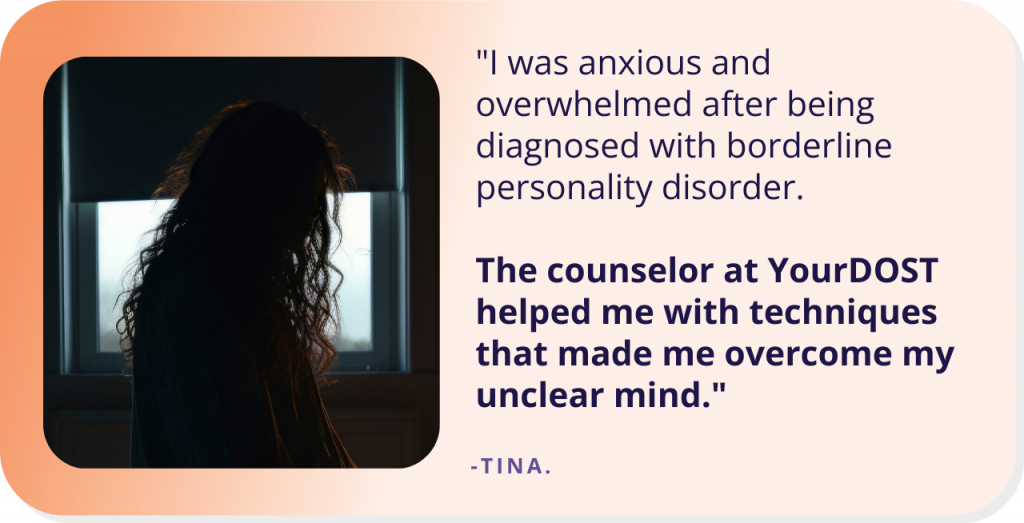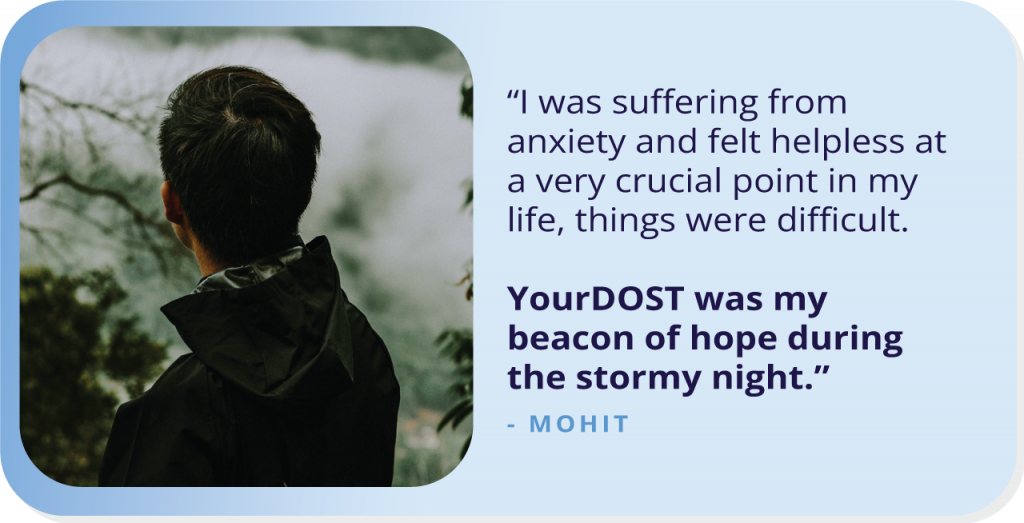Psychological Impact of the COVID-19 Pandemic
A pandemic and an ensuing lockdown, never in our wildest dreams would we have imagined that we would experience these outside of movies. Yet, here we are, confined to our homes, for the sake of our safety and good health. This, of course, brings with it, it’s own set of challenges.
There’s a lot of talk out there about the business aspects, the economic aspects, or the financial aspects of this strange-strange situation. But a topic that isn’t getting sufficient attention, is the Psychological effect it has on each and every one of us. You know exactly what we’re talking about don’t you? Let’s try and tackle this a bit shall we?
Loneliness
Man is a social animal
The fact that this phrase has become such a cliché (thank you social studies classes) also proves just how utterly true it is. We humans have an innate need to interact with other people to survive, some more than others. So it’s quite natural if you’ve been feeling a tinge of loneliness, no thanks to this lockdown.

But just how bad can it get? According to a 2005 study –
Experiencing loneliness for an extended period can severely impact our communication skills and decision making skills.
Worse still, if left unchecked, it can trigger stress and even lead to one developing depression. If the effects of loneliness on our mental health weren’t bad enough, according to a 2018 study –
Being lonely for a long period of time actually has the same effect on our physical health as smoking 15 cigarettes a day!
This situation is bound to be particularly distressing to a particular set of people – extroverts, who get energy and thrive from being around others. This is a particularly hard time for you.
Productivity
Another aspect of lockdown that most of us have had to deal with is working from home. Some call it a boon, wherein they have seen a sharp rise in their productivity. In fact according to a 2019 study –
Working from home greatly benefits employees by eliminating office commute, increases productivity, and leads to healthier lifestyles
But there are others who call it the worst thing to happen to them since India lost the Cricket World Cup semi-finals in 2019.
Let’s look at some of the more individual aspects of work from home that you might be struggling with:
1. Distractions
Home can be full of distractions. TV, dirty dishes, a floor that needs sweeping, etc. When you’re a professional, these can be severely disruptive when you’re trying to work, right?

2. Coordination
I’m used to meeting people every day while I’m at office. I can’t do this at home
Sounds like you? While work may involve some remote coordination, when all of coordination needs to be done virtually, it can be challenging for quite a few of us.
Fear & Anxiety
These are indeed uncertain times. No one can blame you for feeling afraid or anxious for the wellbeing of yourself and your loved ones. In fact, it’s important to feel these emotions to a certain extent in order to safeguard yourselves and them. However, if your emotions get so overwhelming that they start affecting your functionality and quality of life, then they’re unhelpful and counter-productive. So what are some of the reasons that you may feel this way?
1. Information Overload
The information overload that we’re all being exposed to can actually be distressing. It can cause you to develop excessive worry for your own wellbeing as well as that of your near and dear ones. Anxiety is the brain’s natural reaction to worry. Hence, excessive worry can lead to excessive anxiety. At the same time, these are also times when a lot of misinformation and even right out fake news starts circulating around.
According to a 2018 study conducted at MIT, Massachusetts –
False news spreads much faster than real news, particularly because it’s designed to connect with our emotions and thus grab our attention.
This can make it really difficult to differentiate the truth from utter falsehoods.

2. Job Security
The Coronavirus pandemic and the lockdown has wreaked havoc on national and international economies. While no reports of major job losses have surfaced in India, reports of mass layoffs from other countries are bound to sow a seed of insecurity and worry in our minds. In case there have indeed been layoffs in your company, it’s bound to exacerbate your anxiety.
3. Layoff
If you have unfortunately experienced a layoff, you’re bound to feel upset and maybe even anxious. After all, it can be a traumatic experience. According to various research studies –
Losing a job may even take longer to get over emotionally than a divorce or the death of a partner.
4. Stocking up on Provisions
Covid-19 update: Hoarding, transport snags choke supply of essentials
Consumer goods fly off the shelves as coronavirus spreads in India
People rush to stock up on essentials amid Covid-19 outbreak
These are but a few of the hundreds of headlines that have been screaming at us for the past few weeks. Who then can blame you for feeling panicky about the availability of essentials and even hoarding yourself? While hoarding is not the right way to deal with this situation, A 2017 study shows that –
Hoarding is how most people tend to respond when faced with intolerable uncertainty, like in the present situation.
Insomnia
Staying cooped up indoors can have the unintended consequence of affecting our sleep. You see, all of us have something called a “Circadian Rhythm” in-built. This is our “body clock” that helps us maintain our sleep-wake schedule, among other things. If for any reason, your circadian rhythm gets disturbed, it can severely affect your ability to fall asleep and/or stay asleep, and can leave you feeling exhausted, and unfocussed..

An extremely important factor that helps maintain our circadian rhythm is sunlight. Morning sunlight, and it’s slow dimming through the day helps keep our rhythm on track. Staying indoors all day in an underlit setting can throw it off, thus leading to insomnia. In more severe cases, this can trigger depression too.
Tensions at Home
Do you stay with your partner or spouse, maybe your parents, or roommates? Is everything ok in your relationship with them during the lockdown? We ask because one of the more unforeseen consequences of a lockdown that is being observed is a rise in cases of marital discord, family tussle, or roommate tiffs. Infact, reports have already started coming in about a rise in divorce rates, from other countries, as a fallout of the pandemic.
Lawyers in China have reported a 25% jump in the number of divorce applications once the self-isolation period there ended.
There can be many factors for this:
1. Negativity
Research shows that –
Negative events are at least three times more impactful as compared to a positive event
The incessant negativity of the current situation thus requires us to put in a lot more effort to look for positivity. The consequent positivity deficit leads to unsavoury situations wherein things can become tense among the inhabitants of the house.

2. Anxiety
Your “Comfort Zone” is defined as a behavioral space where you follow a set routine. It provides you with mental security which reduces anxiety and stress being forced to spend an extended period at home and work from there can affect your daily routine, and thus push you out of your comfort zone. Thus it leads to a rise in stress.
As has been discussed in great detail, the uncertainty of the current circumstances is a major cause of anxiety in all of us. According to Psychologists –
When we are experiencing heightened anxiety, and your comfort zone is taken away from you as well, a common emotional response is anger.
Throw in some co-inhabitants into the mix and it’s a recipe for heightened tensions at home.
Depression
The fact that these are times of heightened stress is undeniable. While some stress is important and essential, studies clearly show that when the levels cross a certain threshold and are experienced for an extended period, they can lead to depression.

Have you noticed any major behavioural changes in yourself or a loved one recently?
1. Depressed mood most of the day?
2. Markedly diminished interest or pleasure in all, or almost all, activities most of the day?
3. A sudden rise or fall in appetite?
4. Oversleeping, or difficulty in sleeping and/or staying asleep?
5. Fatigue or loss of energy?
6. Diminished ability to think or concentrate, or indecisiveness?
You or they might be suffering from depression.
It is clear that the mental health repercussions of the COVID-19 pandemic and the resultant lockdown, are far more serious than we might’ve thought. Infact, a studied we conducted found that –
65% of Indians are experiencing mental stress because of the COVID-19 pandemic.
Even when this is all over, we might be left mentally scarred.
But we shall overcome the trauma that we have been subjected to because we’re humans, and recovering from adversities is what essentially defines the human spirit.
However, in order to expedite our recovery, we must make sure that we make our mental health a priority every day from hereon, and get the right support for the same. This is exactly what we’re here for, to guide you through this journey as you emerge from these dark times stronger, happier, and wiser.
Looking for some online resources to assist in your mental wellbeing. Check out our – Mental Health Resources For Tacking COVID-19 Crisis
Depending on how affected you are as an individual in these circumstances, you may be in need of a more personalised kind of guidance. For that, all you need to do is connect with our Experts. Stay safe and stay well dear friends.






